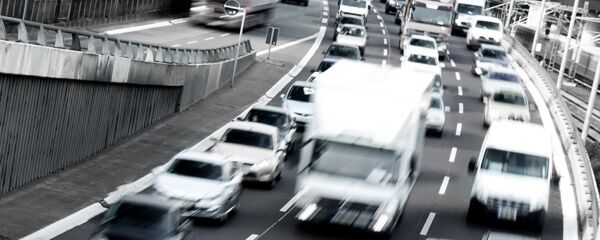If you live in the eastern USA, you've probably encountered an automatic toll-collection system called "E-Z Pass."
E-Z Pass subscribers open prepaid accounts, and then receive special tags to attach to their vehicles. Tolls are automatically debited when you drive your tagged car through an E-Z Pass-equipped toll plaza, recording the time and location along the way.
No need to stop. No need to fish for quarters in your pocket. And no need to roll down the window to confront the often grumpy tollbooth attendant. No wonder E-Z Pass is popular! Indeed, about 25 million drivers in 15 states now use E-Z Pass.
Free Wealth Protection Insights
Enter your email below to receive our weekly briefings on better ways to preserve your wealth, legally reduce your tax bill, and better protect what you’ve worked hard to build.
The Nestmann Group does not sell, rent or otherwise share your private details with third parties. Learn more about our privacy policy here.
PLEASE NOTE: This e-series will be delivered to you via email. You should receive your first message minutes after joining us. By signing up for this course, you’ll also start to receive our popular weekly publication, Nestmann’s Notes. If you don’t want to receive that, simply email or click the unsubscribe link found in every message.
Now for the not so easy to stomach side
Forbes recently published an article that showed vehicles using E-Z Pass in the New York City area are monitored not only at toll-collection booths, but at numerous other locations throughout Manhattan.
This would hardly qualify as news, except that the article—which now has nearly 200,000 views—states that the system reading E-Z passes (beyond the booths themselves, of course), "cannot identify the tag user and does not keep any record of the tag sightings."
That’s a load of B.S.
First, it doesn't matter that these other locations "can't identify the tag user." They can identify the tag and a quick match up with the E-Z Pass head office can easily put two and two together.
Second, it makes no sense that these other locations would "not keep any record of the tag sightings." If that were true, what would be the point of the system in the first place?
The fact of the matter is, as you travel from place to place, your movements are being tracked and recorded. And eventually, perhaps used against you by the authorities.
It’s already starting…
For instance, any law enforcement agency in New York that wants access to E-Z Pass data simply needs to issue a subpoena. There's no probable cause required—just a bald assertion that the data might be useful in a criminal investigation.
Moreover, at least seven states release E-Z Pass data in response to court orders in civil litigation. Pennsylvania lawyer Lynne Gold-Bikin says that E-Z Pass information she obtained in a divorce proceeding helped prove a client's husband was being unfaithful: "He claimed he was in a business meeting in Pennsylvania. And I had records to show he went to New Jersey that night."
Stories like these are going to get more common, not less.
You could just not participate, right?
An obvious way to avoid E-Z Pass surveillance is to not install it, and simply pay tolls with cash. But even that might not be possible for much longer, thanks to a new technology that promises to end your ability to travel anonymously. You simply drive beneath a metal structure equipped with an E-Z Pass detection system and it snaps a photo of your license plate. A few days later, you receive a bill sent to the address of the vehicle’s registered owner. This "no privacy" system is already used in urban areas of Colorado, Florida, and Texas.
So what's the solution for us privacy-seekers?
Well, you might consider dusting off the old bicycle, getting used to taking the bus or considering the old standby organic option (i.e., a horse). You could also move somewhere without the resources and/or political will to install Big Brotherdom to this degree.
But whatever you end up doing, the trend is pretty clear: Your car is being turned against you in the so-called "War on Privacy." And where it will end is anyone's guess.
Mark Nestmann
Nestmann.com













